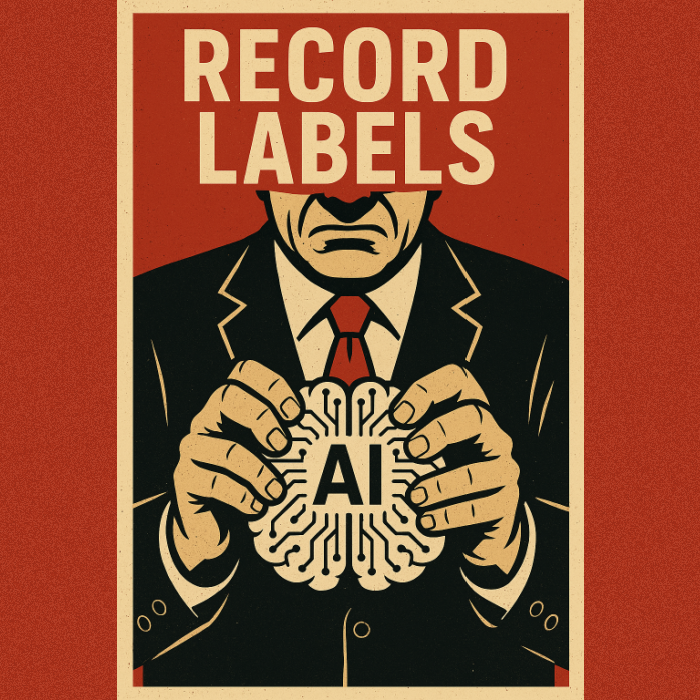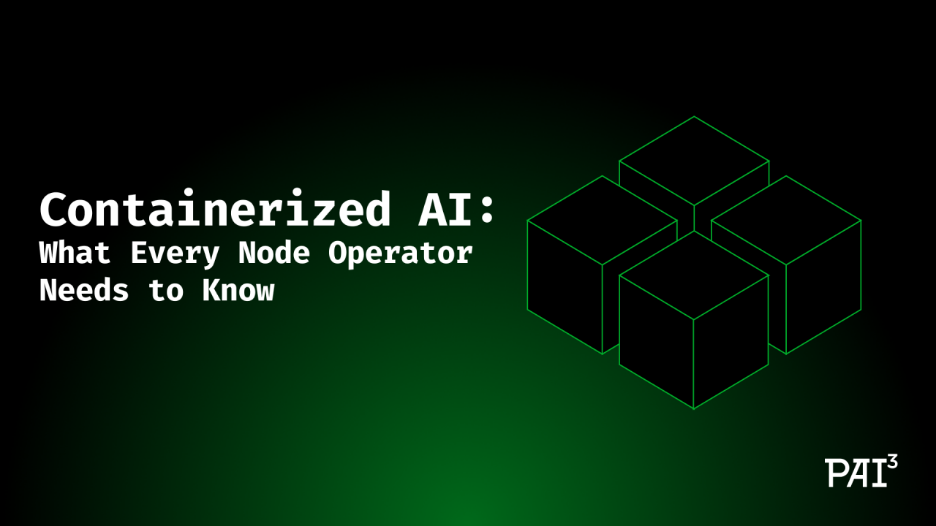
The Labels First Sued AI. Now They Want to Own It.
In the rapidly evolving landscape of artificial intelligence, a fascinating shift is underway. Music labels, once adversaries of AI applications in the music industry, are now vying for ownership and control over the very technologies they once fought against. This article delves into the complexity of this pivot, examining the implications of labels seeking to own AI and how this transition could redefine the music landscape. If you’re keen on understanding the future of music technology and the battle for ownership in an AI-driven age, read on.
Dev Orbit
July 27, 2025
The Pain Point: Copyright Infringement in the AI Era
The intersection of artificial intelligence and the music industry has long been fraught with legal challenges, especially concerning copyright infringement. In recent years, music labels have taken a hard stance against AI-generated content, rightfully concerned about their intellectual property rights. With sophisticated AI models capable of producing music that closely resembles copyrighted works, the threat of infringement has loomed large.
For instance, consider the case of “deepfake” music, where AI can mimic an artist's voice seamlessly. In 2020, several high-profile lawsuits were filed against companies using AI to create music without the consent of the original artists. This not only brought to light the fragility of copyright laws in the context of AI but also illustrated a significant pain point for labels—protecting their revenue in a digital age where control is diluted.
The emergence of models such as GPT-5 adds another layer to this equation. As these systems become increasingly capable of generating human-like content—including music—labels find themselves grappling with a paradox: how to safeguard their intellectual property while also leveraging these new technologies for their benefit. This dilemma sets the stage for a potential rapprochement between AI and the music industry.
Understanding GPT-5 and Its Impact on the Music Industry
GPT-5, the latest iteration of the Generative Pre-trained Transformer, has shown remarkable advancements in natural language processing and generative capabilities. While initially focused on text, its applications in music generation are becoming a reality. Artists and producers can utilize this advanced AI to co-create music, craft lyrics, and even produce entire albums.
As labels synthesize this technology to enhance their artistic offerings, the question arises: how do they secure ownership rights over AI-generated content? With GPT-5 streamlining the creation process, labels are now pursuing strategies that allow them to own, monetize, and distribute content created with AI assistance without facing the same legal battles that plagued the industry in the past.
The pivotal moment has arrived. Labels are abandoning their combative stance and exploring partnerships with AI developers to gain a piece of this burgeoning market. They seek to forge agreements that provide a legal framework for ownership while maximizing their returns. This shift not only signifies a change in approach but could also redefine artists' relationships with labels in an industry increasingly dominated by AI.
The Transition from Lawsuits to Ownership Models
This strategic pivot highlights a fundamental transformation: the transition from lawsuits to proactive ownership models. As music labels reassess their approach, they are beginning to delve into various ownership structures that can effectively accommodate AI-generated content. Here are some emerging frameworks:
Licensing Agreements: Labels may negotiate licensing agreements that allow AI technologies to use existing music catalogs for model training while maintaining copyright integrity.
Revenue Sharing Models: Collaboration with AI companies can lead to revenue sharing agreements, where artists and labels receive a percentage of profits generated from AI-utilized music.
Creation Credits: Some labels might push for the acknowledgment of AI as a co-creator, ensuring it is credited in a manner similar to human collaborators.
In implementing these models, labels can transform the narrative around AI in music. They can shift from viewing AI purely as a threat to recognizing it as a valuable partner. This collaboration can foster innovation, allowing artists to explore new creative horizons and experiment with sounds that were previously inaccessible.
Real-World Examples of Collaboration Between Labels and AI
To provide context, let's explore some real-world instances where music labels have begun collaborating with AI technologies. For example, Warner Music Group has entered a partnership with AI music platform Endel, focusing on creating personalized soundscapes and experiences that leverage AI capabilities. This collaboration illustrates how labels can harness AI to offer unique content tailored to listeners' preferences.
Moreover, Universal Music has invested in various AI startups seeking to revolutionize music creation and distribution. By adopting innovative approaches rather than relying solely on traditional methods, labels position themselves at the forefront of a rapidly changing industry landscape.
Additionally, initiatives like OpenAI's Jukedeck, which enables the creation of royalty-free music through AI-generated compositions, have encouraged labels to reconsider traditional revenue models. Rather than competing, many labels now see opportunities wherein they can integrate AI-generated music into various avenues such as film, advertising, and video games without directly infringing on the copyrights of original artists.
The Moral and Ethical Considerations of AI Ownership
As labels explore AI technologies, the journey also raises moral and ethical concerns about ownership and the authenticity of music. The debate around AI-generated music provokes questions about what it means to be an artist in a landscape where algorithms contribute dramatically to the creative process.
One ethical dilemma is the potential for AI to devalue human artistry. Can a world dominated by AI-generated music genuinely reflect the emotions and lived experiences that come from human creators? Critics worry that excessive reliance on AI could lead to homogenization in music, where unique voices and perspectives are overshadowed by formulas optimized for mass appeal.
Moreover, as labels seek ownership over AI-generated music, it is crucial to ensure that artists are compensated adequately. They must establish frameworks that honor the contributions of human creators while making room for AI as a co-collaborator. A balance must be struck to promote both innovation and human creativity.
Bonus/Advanced Tips for Navigating the AI and Music Landscape
For artists, producers, and labels looking to navigate this new terrain, here are some advanced tips:
Embrace Collaboration: Artists should consider collaborating with AI as co-creators, leveraging AI tools while ensuring they maintain their unique voice.
Stay Informed on Legal Developments: The landscape is evolving—keeping abreast of legal changes pertaining to AI in music will help navigate the complexities of rights and ownership.
Integrate Listener Preferences: Utilize data analytics to inform the AI about listener preferences, ensuring that even AI-generated music resonates well with audiences.
Explore Creative AI Tools: Experiment with different AI tools that aid in music creation, like AIVA or Amper Music, to find what aligns best with your artistic vision.
By being proactive and aware of the unfolding situations, artists and labels can leverage AI to enhance creativity rather than inhibit it.
Conclusion
The transformation of the relationship between music labels and AI presents both challenges and opportunities in an ever-evolving landscape. Labels that transition from combatants to collaborators with AI stand to redefine the music industry while maintaining their relevance in a digital marketplace. Exploring ownership rights, fostering ethical practices, and embracing technological advancements will pave the way for a balanced future. Emphasizing collaboration and innovation is crucial for creators at all levels. As you engage with these insights, consider sharing your thoughts and experiences in the comments below. Let's spark a conversation about the future of music!

Enjoyed this article?
Subscribe to our newsletter and never miss out on new articles and updates.
More from Dev Orbit

Improving API Performance Through Advanced Caching in a Microservices Architecture
Unlocking Faster API Responses and Lower Latency by Mastering Microservices Caching Strategies

Top AI Tools to Skyrocket Your Team’s Productivity in 2025
As we embrace a new era of technology, the reliance on Artificial Intelligence (AI) is becoming paramount for teams aiming for high productivity. This blog will dive into the top-tier AI tools anticipated for 2025, empowering your team to automate mundane tasks, streamline workflows, and unleash their creativity. Read on to discover how these innovations can revolutionize your workplace and maximize efficiency.

Best Cloud Hosting for Python Developers in 2025 (AWS vs GCP vs DigitalOcean)
Finding the Right Python Cloud Hosting in 2025 — Without the Headaches Choosing cloud hosting as a Python developer in 2025 is no longer just about uptime or bandwidth. It’s about developer experience, cost efficiency and scaling with minimal friction. In this guide, we’ll break down the top options — AWS, GCP and DigitalOcean — and help you make an informed choice for your projects.

You’re Using ChatGPT Wrong: Try This Underground Prompting Method Instead
Unlock the full potential of ChatGPT with innovative prompting techniques that elevate your conversations and outputs. Learn how to interact with AI like a pro by diving deep into unique and effective methods that go beyond typical usage. This post unveils the underground prompting strategies that can lead to richer, more contextual AI interactions.

🕵️♂️ Mastering Stealth Web Scraping in 2025: Proxies, Evasion and Real-World Techniques
A 2025 Guide to Evading Bot Detection with Playwright, Proxies and Human-Like Behavior

🚀 Mastering Python Automation in 2025: Deep Insights, Real-World Use Cases & Secure Best Practices
Streamline your workflows, eliminate manual overhead and secure your automation pipelines with Python — the most powerful tool in your 2025 toolkit.
Releted Blogs

AI Is Reshaping Jobs — and That Could Hit You Hard
As artificial intelligence continues to evolve, its impact on the job market is growing more profound each day. In this article, we will explore how AI technologies like GPT-5 are transforming various industries, the potential risks for workers, and actionable steps to navigate this changing landscape. From automation to the creation of new job roles, we will offer insights that every professional should be aware of to remain competitive in the era of AI.

Why Most People Waste Their AI Prompts ? How to Fix It...
In the current landscape of AI technology, many users struggle with crafting effective prompts. This article explores common pitfalls and offers actionable strategies to unlock the true potential of AI tools like GPT-5.

World Models: Machines That actually “Think”
Discover how advanced AI systems, often dubbed world models, are set to revolutionize the way machines interpret and interact with their environment. Dive deep into the underpinnings of machine cognition and explore practical applications.

Redefining Customer Care at Travelgate: Our Journey to AI-Driven Support
In today’s fast-paced world, customer expectations are constantly evolving, making it crucial for companies to adapt their support strategies. At Travelgate, we've embarked on a transformative journey to redefine customer care through advanced AI systems, driven by GPT-5 technology. This article details our experiences, lessons learned, and how AI solutions have revolutionized our customer support while enhancing user satisfaction and operational efficiency.

Are AIs Becoming the New Clickbait?
In a world where online attention is gold, the battle for clicks has transformed dramatically. As artificial intelligence continues to evolve, questions arise about its influence on content creation and management. Are AIs just the modern-day clickbait artists, crafting headlines that lure us in without delivering genuine value? In this article, we delve into the fascinating relationship between AI and clickbait, exploring how advanced technologies like GPT-5 shape engagement strategies, redefine digital marketing, and what it means for consumers and content creators alike.

Containerized AI: What Every Node Operator Needs to Know
In the rapidly evolving landscape of artificial intelligence, containerization has emerged as a crucial methodology for deploying AI models efficiently. For node operators, understanding the interplay between containers and AI systems can unlock substantial benefits in scalability and resource management. In this guide, we'll delve into what every node operator needs to be aware of when integrating containerized AI into their operations, from foundational concepts to practical considerations.
Have a story to tell?
Join our community of writers and share your insights with the world.
Start Writing